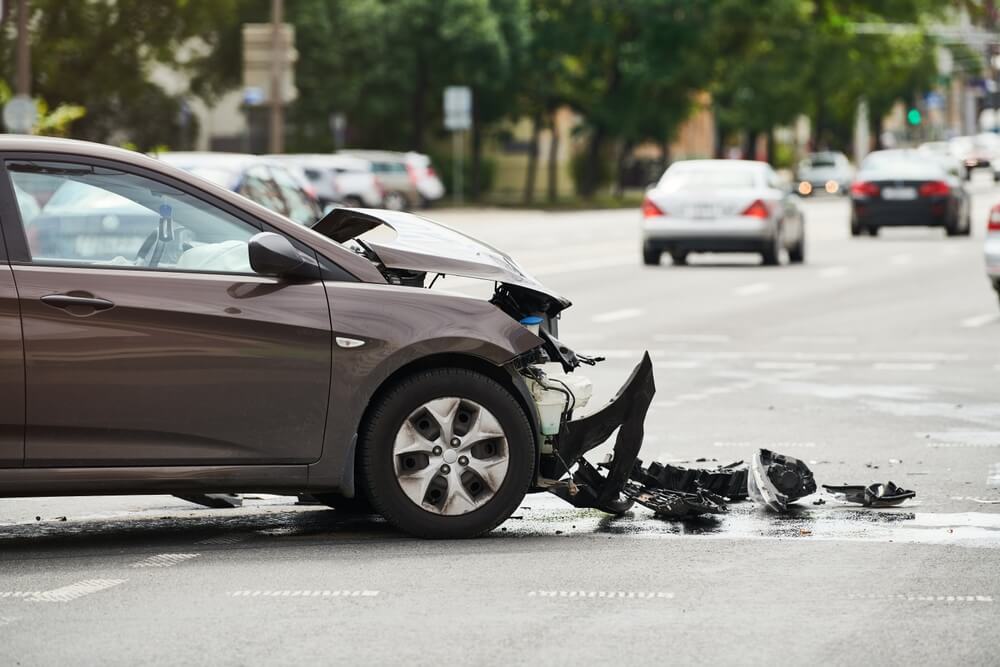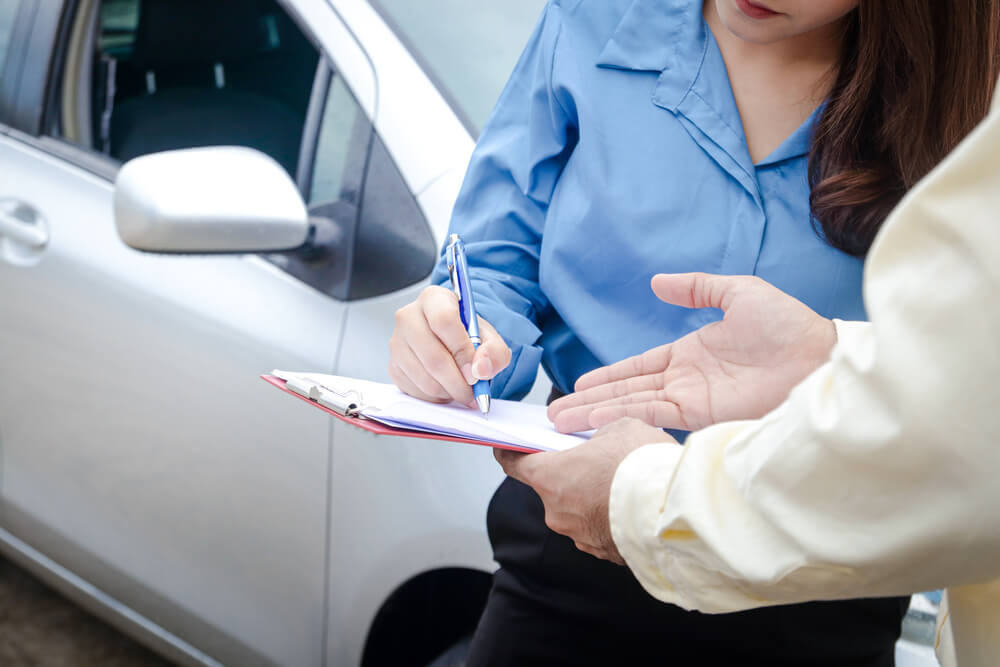The average compensation for a pedestrian accident, based on accident settlements in recent years, can range from the tens of thousands for minor injuries, such as whiplash or a fractured bone, to more than $1 million or more for catastrophic injuries, such as a spinal cord or traumatic brain injuries.
Most accident settlements settle confidentially, providing limited publicly available data for these estimates.
Lawyers and insurance adjusters can access statistical data and trends for many personal injury settlements. They can use this information and many other factors to determine the value of your pedestrian accident.
What Factors Determine the Value of My Pedestrian Accident Claim?
While each pedestrian accident differs, here are some factors that often influence the value of an insurance claim:
The Nature and Extent of Your Injuries

The severity of your injuries directly influences the value of your settlement.
When more severe injuries often require extensive medical care, extended therapy sessions, and prolonged absence from work.
Serious injuries also increase the likelihood of other related losses, like pain and suffering.
Another factor is the specific body part the accident injured.
For example, a car insurance company adjuster may not deem an arm injury that requires a few weeks of wearing a splint as valuable as an eye injury that permanently impairs your vision.
And that eye injury likely pales compared to an injury resulting in an amputated limb or visible burn scars. Disabling and permanent injuries increase compensation because they require extensive medical care and support.
How Your Injuries Have Affected Your Life
Another factor that affects the value of your pedestrian accident claim is the impact of your injuries on your everyday life.
For instance, do your injuries prevent you from returning to your work in the same capacity as you did before the accident?
Can you enjoy the same activities you did before? Do you need assistance with personal grooming or special mobility equipment?
Can you have the same relationship with your spouse or partner that you did before the accident? Did the accident affect you emotionally? These and other considerations may play into the value of your claim.
What You Did Immediately After the Accident
You must substantiate the damages resulting from a car accident in a settlement claim. This often relies on the actions you took (or failed to take) after the incident.
Did you or someone else capture photographs of relevant details at the accident scene, gather the names of any witnesses, and explore the possibility of obtaining footage from security or surveillance cameras that may have recorded the collision?
Did you receive medical treatment at the scene or seek medical treatment soon afterward? Did you follow your doctor's advice and receive all necessary treatment?
What you do after the accident helps establish the injuries in your medical records and shows that you take the accident and your injuries seriously.
What Insurance Coverage is Available

Car insurance coverage pays insurance settlements or court judgments in most pedestrian accident cases.
States have different rules on whose insurance pays for medical bills—the at-fault party or the injured person.
Pennsylvania, New Jersey, and Florida are all no-fault car insurance states, so you file a claim with your insurance company regardless of fault for the accident.
All three states also require motorists to purchase a minimum amount of personal injury protection (PIP) insurance to cover medical bills and, in some cases, lost income.
If you don’t have car insurance and a spouse or relative who lives with you does not cover you, you may file a PIP claim under the at-fault driver’s insurance or through a special state insurance program.
However, when you file a PIP claim, you can only recover the amount of coverage in the policy. Pedestrian accidents can result in serious and catastrophic injuries that may exceed those amounts.
Plus, you may experience other losses, such as income if your injuries prevent you from working or pain and suffering. In that case, you may file a personal injury lawsuit.
Talk with a lawyer in your state to determine how best to move forward with your pedestrian accident claim.
Who Is at Fault and by How Much
The degree to which the pedestrian shares fault affects the magnitude of the settlement offer provided by the insurance company. However, two important considerations must be kept in mind.
The first pertains to the specific shared-negligence legal rule applicable in the state where the accident occurred.
Each state employs a comparative or contributory negligence system, which can reduce or eliminate the potential legal recovery for an injured person if they helped cause the accident.
While these rules technically apply to court cases during the trial stage rather than insurance settlement offers, they significantly influence insurance adjusters when assessing the potential value of a claimant's case.
Therefore, the state's comparative/contributory fault rule becomes a factor in any settlement offer received by injured pedestrians who cannot establish fault for the accident.
Pennsylvania follows a modified comparative negligence rule in which a claimant may pursue a damage award if they are less than 51 percent at fault than the other parties. However, their compensation will decrease by their percentage of fault.
New Jersey and Florida have similar modified comparative negligence rules. Still, the claimants in those states can only recover compensation if they contribute less than 50 percent of the fault for their injuries. Likewise, their compensation will decrease by their percentage of fault.
The second consideration regarding fault relates to the claimant's ability to provide evidence establishing the party responsible for the accident.
Although the driver of the vehicle may bear all of the fault for striking the pedestrian, the claimant's ability must prove this with evidence.
The claim's value significantly diminishes if the pedestrian fails to substantiate their claim (and the insurance adjuster knows they cannot).
Conversely, if the claimant possesses police reports, eyewitness testimonies, and surveillance footage demonstrating the driver's fault, their claim strengthens, often resulting in a more substantial insurance company settlement offer.
The Four Elements of Negligence
In legal terms, negligence typically refers to failing to provide adequate care or attention, resulting in harm or risk to another person.
While the specific elements of negligence may vary slightly depending on the jurisdiction, here are four elements that plaintiffs must establish to prove negligence in a pedestrian accident:
- Duty of care: The driver in the accident must owe a duty of care to the pedestrian. This duty arises from the expectation that drivers must operate their vehicles safely and pay attention to pedestrians on or near the roadway.
- Breach of duty: The driver must have breached their duty of care by failing to exercise reasonable caution or acting negligently. This can include speeding, failing to yield to pedestrians at crosswalks, running red lights, or driving while distracted.
- Causation: The driver's breach of duty must directly cause or significantly factor in the pedestrian's injuries or harm. The pedestrian must show that the driver's negligence directly led to the accident and subsequent injuries suffered by the pedestrian.
- Damages: The pedestrian must have suffered actual damages or injuries because of the accident. This can include physical injuries, medical expenses, pain and suffering, loss of income, or other quantifiable losses.
How Can a Motorist Cause a Pedestrian Accident?
Drunk driving accounts for nearly half of all fatal pedestrian accidents involving motorcycles, trucks, and automobiles.
Several other common factors contribute to motorist-caused pedestrian accidents, including:
- Speeding
- Inclement weather
- Distracted driving
- Failure to obey traffic signals
- Failure to yield to pedestrians
Do I Need a Lawyer for My Pedestrian Accident Claim?
While the first offer of compensation from the insurance company might tempt you, consult a lawyer before making that decision.
To assist with your pedestrian accident claim:
- A lawyer can guide you through the legal process and ensure you receive fair compensation for your losses.
- A lawyer can assess the extent of your damages, evaluate the long-term impact on your life, and determine the appropriate compensation you deserve.
- A lawyer will negotiate with insurance companies on your behalf and fight for a fair settlement.
- A lawyer will gather all necessary evidence to support your claim and build a strong case to establish the extent of your damages.
- A lawyer will navigate the legal complexities of pedestrian accident cases and ensure that all legal requirements and deadlines are met.
- If the insurance company fails to accept a fair settlement, a lawyer can file a lawsuit in civil court on your behalf, represent you in court, and effectively present your case.
Contact a Pedestrian Accident Lawyer with The Levin Firm Personal Injury Lawyers Today

If you or a loved one were injured in a pedestrian accident, you need an experienced personal injury lawyer on your side.
A personal injury lawyer will understand local and state personal injury laws and can get you the compensation you need and deserve.
Contact a pedestrian accident lawyer from Levin Firm today for your free consultation and case evaluation.
